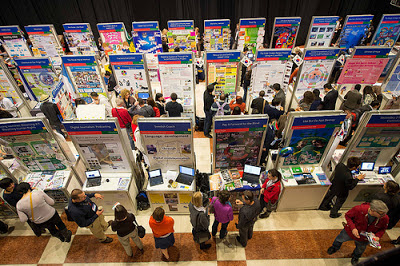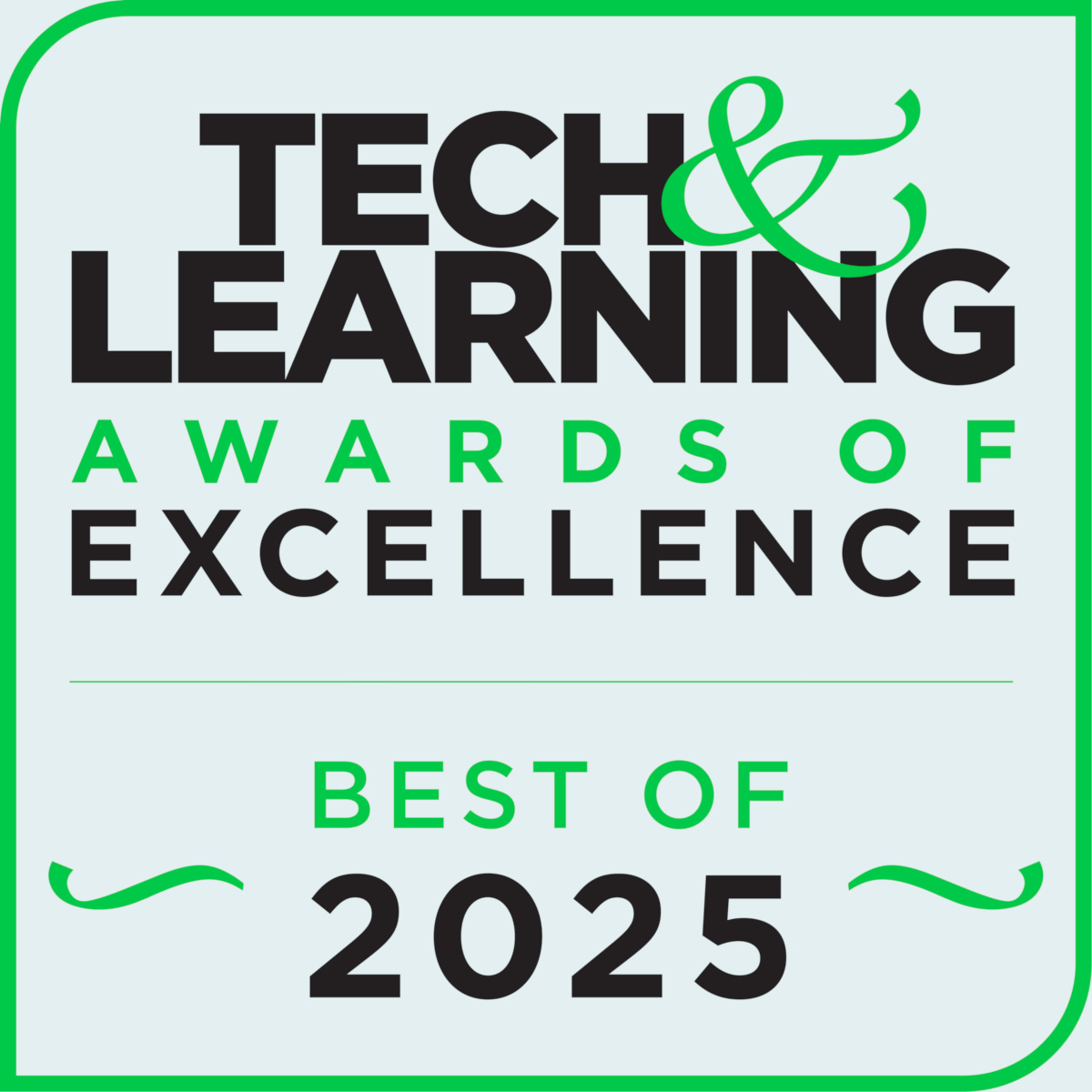Are you an innovative educator?

Teacher showcase | Microsoft PIL photostream
Teachers who were finalists from more than 80 countries came together at Microsoft's Partner's in Learning Global Forum to showcase and celebrate the innovative work their students were doing. I was pleasantly surprised to see the results as I met with many of the teachers. This appears to be a great framework for fostering innovation.
Below is the criteria that teachers journeying down the path to innovative education incorporated into their projects.
As you take a look, think about what you already incorporate into your work and what new things can be added.
1 - Collaboration
Students share responsibility and make substantive decisions with other people. Their work is interdependent.
2- Knowledge construction
Students construct and apply knowledge. That knowledge interdisciplinary.
3 - Student regulated
The learning activity is long-term. Students plan and assess their own work, and revise their work based on feedback.
4 - Real-world problem-solving and innovation
The learning activity requires solving authentic, real-world problems. Students’ solutions are implemented in the real world.
5 - Use of information communications technology (ICT) for learning
Students are active users or designers of an ICT product for an authentic audience.
6 - Skilled communication
Students communicate their own ideas regarding a concept or issue. Their communication is supported with evidence and designed with a particular audience in mind.
Planning and Design of the Learning Environment
The planning for learning environment should facilitate the development of different dimensions of 21st century skills e.g. knowledge building, use of ICT for
learning, problem-solving and innovation, self-regulation, collaboration and skilled communication.
Presentation of the Project – Evidence of Learning
Student work demonstrates different dimensions of 21st century skills e.g. knowledge building, use of ICT for learning, problem-solving and innovation, self-
regulation, collaboration and skilled communication. Clear evidence of the learning process engaged in by learners including ground breaking use of ICT.
Collaboration
The learning activities require students to work with other people, sharing responsibility while making substantive decisions for developing a joint product, a design, or an answer to a complex question. Students may be collaborating with their peers in the classroom, or with adults or youth outside the classroom.
Tools and ideas to transform education. Sign up below.
Knowledge Building & Critical Thinking
The learning activities require students to move beyond reproducing what they have learned to building knowledge through interpretation, analysis, synthesis, or evaluation. These learning activities ask students to create or explore information or ideas that are new to them and to connect information and ideas from two or more academic disciplines.
Extended Learning Beyond the Classroom
The learning experience is not bound by classroom walls, time-frame of conventional lessons, subject parameters. The project addresses real world issues (i.e. authentic situation and data from outside the classroom). The students’ ideas / solution are innovative in that they are implemented in the real world and have meaningful impact on communities locally and / or globally.
Cutting Edge Use of Technology for Learning
Students use ICT in ways that support knowledge building, collaboration, or learning beyond the classroom. ICT use enables new knowledge-building/collaboration/learning beyond the classroom opportunities that
would not have been possible without it. Digital tools been used in imaginative and ground-breaking ways to support learning processes.
Educator as Innovator and Change Agent
The educator has significantly changed the learning process through the use of ICT and made a difference beyond their own classroom. The educator demonstrates evidence of continuous improvement in their professional practice, models lifelong learning and exhibits leadership in their school and professional community by supporting other educator’s development and understanding of the impact on learning of the effective use of digital technologies.
Lisa Nielsen writes for and speaks to audiences across the globe about learning innovatively and is frequently covered by local and national media for her views on “Passion (not data) Driven Learning,” "Thinking Outside the Ban" to harness the power of technology for learning, and using the power of social media to provide a voice to educators and students. Ms. Nielsen has worked for more than a decade in various capacities to support learning in real and innovative ways that will prepare students for success. In addition to her award-winning blog, The Innovative Educator, Ms. Nielsen’s writing is featured in places such as Huffington Post, Tech & Learning, ISTE Connects, ASCD Wholechild, MindShift, Leading & Learning, The Unplugged Mom, and is the author the book Teaching Generation Text.
Disclaimer: The information shared here is strictly that of the author and does not reflect the opinions or endorsement of her employer.
Lisa Nielsen (@InnovativeEdu) has worked as a public-school educator and administrator since 1997. She is a prolific writer best known for her award-winning blog, The Innovative Educator. Nielsen is the author of several books and her writing has been featured in media outlets such as The New York Times, The Wall Street Journal, and Tech & Learning.
Disclaimer: The information shared here is strictly that of the author and does not reflect the opinions or endorsement of her employer.
